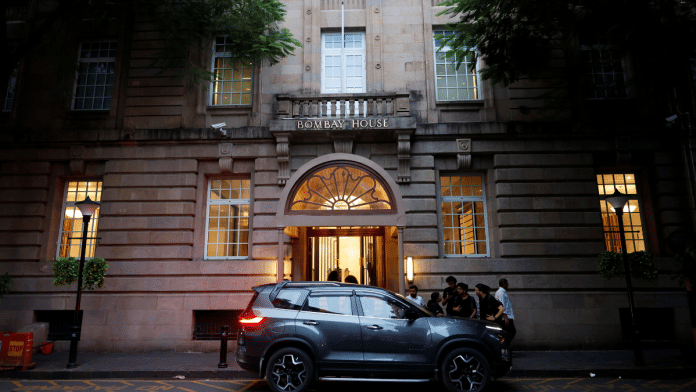Washington: More than half a million women left the labor force this year. Many are mothers with young children. It’s being called the next she-cession.
This may be a good thing to the extent that it reflects women’s preferences, such as wanting to spend more time with their families, or that it represents the improved ability of a partner to support a family on a single income.
It may be a bad thing to the extent that workplace policies (specifically the rollback of pandemic-era accommodations such as flexible work) make it harder for women to have a family alongside the career they trained for and desire to have.
But there’s a new theory in town: The fewer women in the workforce, the better. That argument — that working women are woke and will be the downfall of corporate America — is the subject of conservative commentator Helen Andrews’ viral essay, “The Great Feminization,” which is reverberating in conservative circles.
It seems that in response to the progressive left’s obsession with genders and sexual identities, the political right is toying with its own gender extremism. And it’s not just Andrews.
From the growing Republican ‘‘manosphere” to prominent Christian leaders such as Doug Wilson questioning women’s right to vote, the gender wars have seemingly moved to the right. For now, these ideas mostly live in the political intelligentsia and online far-right hubs. But poignant diagnoses have a way of trickling out, especially in times as uncertain as our own.
In her essay, Andrews asserts that as women have entered the workforce in larger numbers, there has been little benefit, only the introduction of so-called female vices, which she calls wokeness. “Everything you think of as wokeness involves prioritizing the feminine over the masculine: empathy over rationality, safety over risk, cohesion over competition,” Andrews argues.
Goodbye to the allegedly unbiased pursuit of truth and productivity of the Mad Men era. These virtues have fallen prey to the working women who are increasingly taking over male-dominated professions such as medicine, law, and academia. The result, she predicts, will be disastrous: “To be blunt, the rule of law will not survive the legal profession becoming majority female.”
I get why simple explanations are appealing in our complex and changing world. No one’s job seems safe from AI. It’s hard to support a family, even with two earners, let alone one. Cultural tripwires and division are everywhere, including in corporate America.
Tariffs aren’t rebuilding domestic manufacturing — quite the opposite — and healthy able-bodied men remain out of the labor force in historic numbers. Meanwhile, women are surpassing men in educational attainment and excelling in the service sector, although there is a consistent wage gap and leadership positions are held mostly by men.
A scapegoat to blame for our workplace and cultural woes would be convenient. It would suggest that our problems can easily be “fixed” by removing the already limited supports for working women and mothers in particular. Easy enough.
Andrews’ argument sparked an extensive and thoughtful conversation among many conservative thinkers and writers, including one between Andrews, New York Times columnist Ross Douthat and my friend Leah Sargeant from the Ethics and Public Policy Center, who wrote a compelling book arguing the opposite: how the workplace doesn’t yet accommodate women (or humans) enough, called The Dignity of Dependence.
They raised points including that professional settings dominated by women, such as pharmacies or veterinary clinics, are hardly more woke than industries dominated by men, such as management consulting and media. Or that men come with public vices, too; see the wars and bloodshed of masculine-dominated politics.
I, too, am unconvinced of Andrews’ conclusion, which the recent flight of women from the labor force itself contradicts. (Perhaps the labor force isn’t built by and for women after all!) But even more so because I believe in a different vision of what good looks like, and I’m suspicious when anyone elevates the virtues of one gender at the expense of the other.
Men and women can work together without attempting to either erase gender differences or over-emphasize them. We don’t need to exaggerate the virtues of one gender or the vices of another, or rail against “toxic masculinity” on the left or “female wokeness” on the right. We can recognize the power of men and women together instead of blaming one or the other for our cultural downfall.
Practically, we should be seeking a multitude of paths for both men and women to have fulfilling public and private lives. This may include keeping or introducing accommodations such as paid parental leave or flexible work and predictable scheduling that enable more parents, and especially mothers, to establish meaningful career paths while being with their children. Or finding ways for men to be more emotionally and financially attached to their families, instead of nearly a quarter of American mothers single-parenting — the largest share in the developed world, as Richard Reeves and others have written about.
And yes, we should wonder why women are leaving work — and not assume it’s for the best.
Disclaimer: This report is auto generated from the Bloomberg news service. ThePrint holds no responsibility for its content.
Also read: Gallup poll shows American dream is souring for Americans. Many eyeing Canada, Italy, Japan






